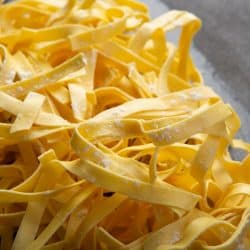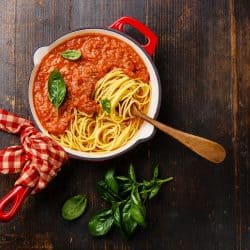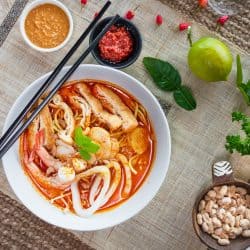The base of any good pasta dish is the noodles! It is natural to wonder if your pasta will absorb water when cooked. We have thoroughly looked into this question for you and have gathered information from the best resources to share with you on this topic.
Noodles do absorb water when cooked. It is important to note that though they absorb a certain amount of water while cooking, you will usually need to use more than that to cook the pasta properly. Since there are so many cooking methods and types of pasta, we have found that the exact amount of water absorbed will vary quite a bit. It will depend on desired texture and type of pasta but generally, we find the that:
- Al dente pasta will absorb up to 1.4 times its weight.
- Commonly cooked pasta absorbs up to 1.8 times weight.
Now that you know that your pasta will absorb water when cooked, you may have more questions on how much water you actually need to cook your dish. We have found the answers to your questions on the best water amounts and methods for cooking your pasta. We have even found new methods that will require less water to cook your noodles. Keep reading to find out how to turn out a perfectly cooked dish.
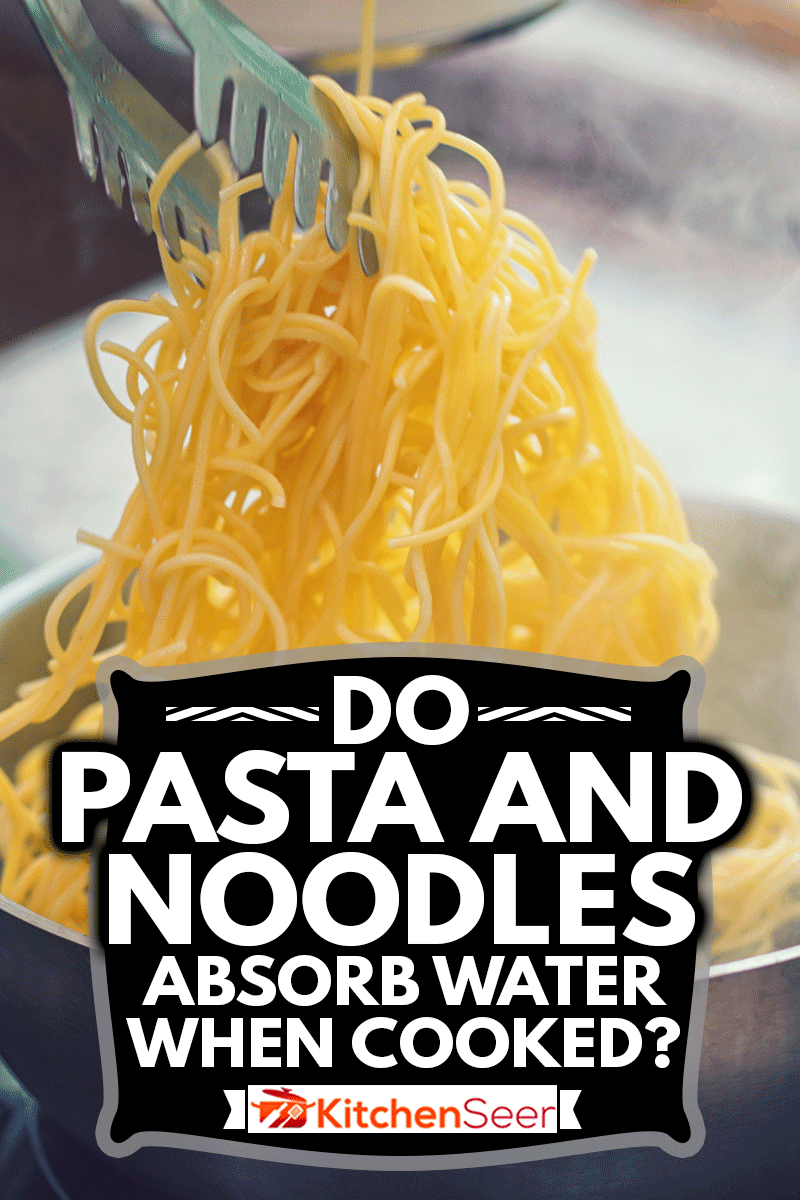
Al Dente Pasta Will Absorb Water up to 1.4 Times its Weight
Al dente pasta, which means "to the tooth" in Italian, is the preferred texture of cooked pasta. This means that the pasta will be cooked until the middle is still slightly doughy or chewy. Experts say that cooking pasta this way will retain the best flavor and texture.
Some sources say that the water absorbed is around 75% of its dry weight. It can absorb roughly up to 1.4 times its dry weight and still be considered al dente. Going with this calculation, a pound of pasta would absorb almost 2 cups of water in about 7 to 9 minutes.
Commonly Cooked Pasta absorbs up to 1.8 Times its Weight
We find that most household cooks actually overcook pasta. For a common homemade spaghetti dish, the noodles would absorb more water due to the longer cooking times. In these cases, pasta can absorb up to 1.8 times its weight in water or more the longer it is left to cook. Using this calculation, a pound of pasta would absorb up to a little over 3 cups of water in a 10 to 12 minutes period.
What Is The Ratio Of Pasta To Water?
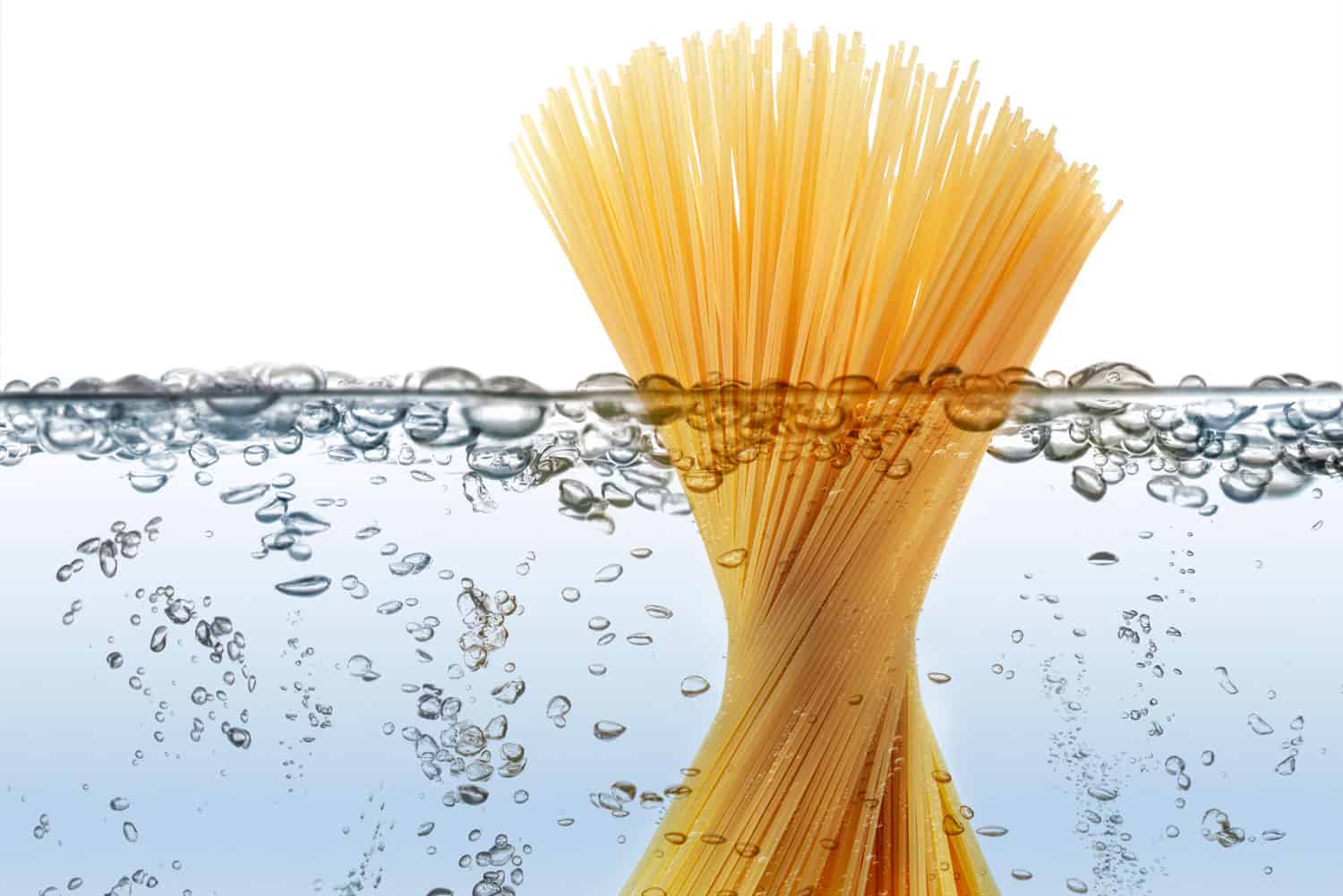
The ratio of pasta to water is important since it will affect how your noodles turn out. In general, most boxed pasta will call for 4 to 6 quarts of water per pound of dry noodles.
What Happens If You Cook Pasta With Less Water?
Cooking your pasta with less water could cause the noodles to stick together or become too starchy. They can also stick to the bottom of the pan. That being said, you may be surprised to find that many home chefs are finding success with cooking their dishes with less water.
If you find that conservation of water and energy is important to you, there are some methods you can try to cook your noodles with only a little water. These methods work best for recipes that use the starch from the water to thicken up the sauce. Try this method for thin, quick-cooking pasta like ramen or short pasta like penne or macaroni.
Here are some basic instructions for cooking pasta with less water. You will want to use this method for 8 ounces of dried noodles or less for the best results.
- Cook your mix-ins: protein, veggies, etc.
- Add sauce and noodles to the mix-ins.
- Add enough water to cover noodles.
- Cook over medium heat until pasta is desired consistency; stir constantly.
- Let the dish sit 5 to 10 minutes to thicken.
Cooking pasta is very versatile. Some cooks say the water needs to boil first before the pasta is added, but if you follow the above instructions and make sure you can keep an eye on your pan, then you can add the pasta, sauce, and water and bring it all to a simmer together.
Another unusual low-energy pasta preparation recommends that you can soak your pasta at room temperature. This method still uses more water than the above one-pot method but less water than traditional boiling. We recommend this method if you are cooking with a robust sauce, since the long soaking time can affect the flavor profile of the noodle. When you are ready to use your pre-soaked pasta, you would just need to cook in the sauce for 1 minute and serve.
Do You Keep The Water Boiling When Cooking Pasta?
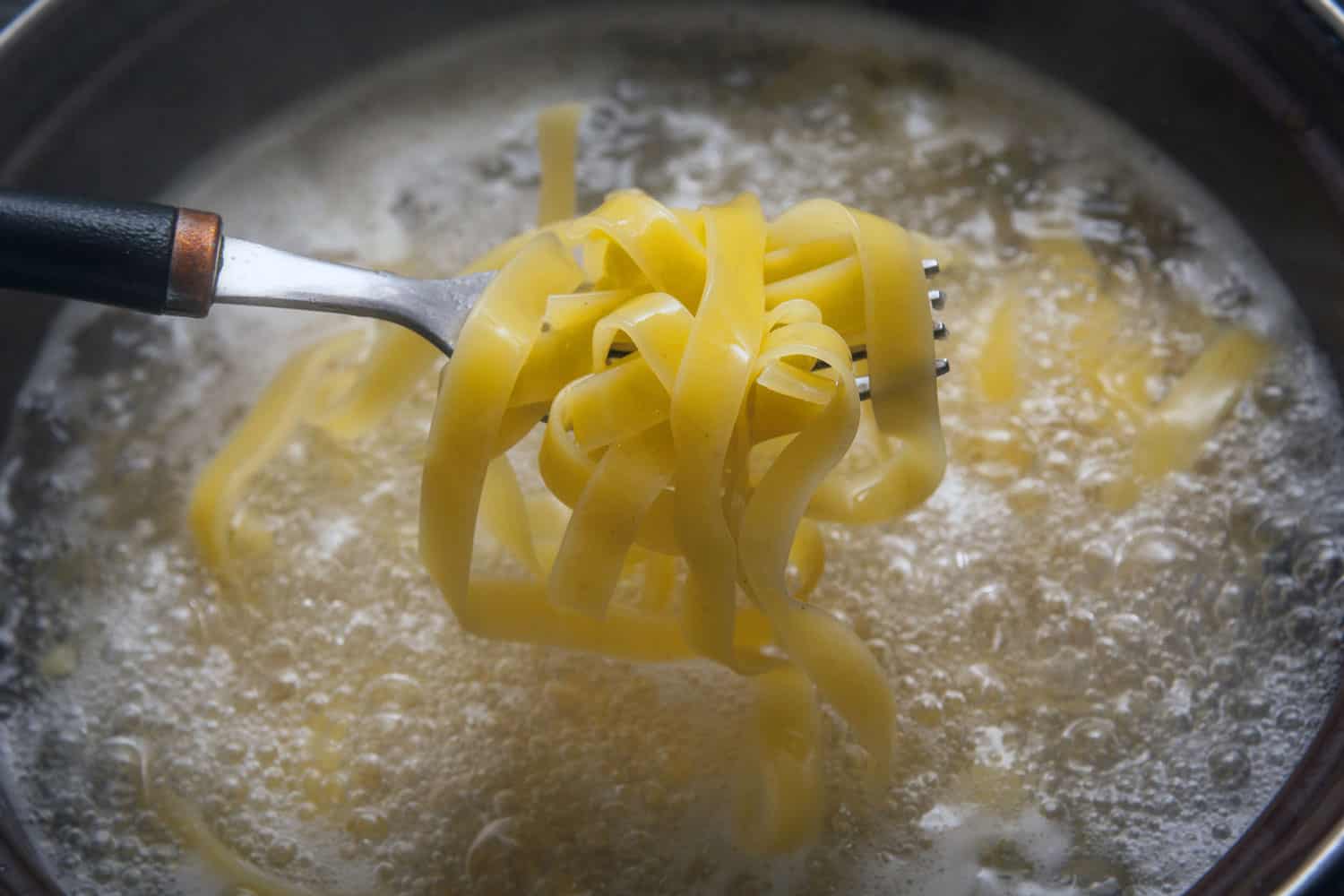
The simplest method of cooking your noodles may be the traditional boiling method. When adding your pasta to boiling water, it is best to keep your water at a rolling boil. Keeping the water boiling when cooking pasta allows you to do other tasks while your dish is cooking. The high temperatures form a seal on the noodle and will keep it from sticking after an initial stir at the beginning of the cooking process.
If you follow the low water or one-pot cooking method, you would not want to keep the water at a full boil since it will cook off possibly before your pasta is done. With this method, you would want to keep your water or sauce at a simmer.
How Long Should You Cook Pasta?
The cooking times will vary depending on the type of pasta you are preparing. Here are some cooking times for the most popular pasta. Note that the time begins at the point you add the pasta to already boiling water. You should use these times as a guideline and start checking the pasta at the lowest time since you may have a texture preference.
- Macaroni: 8-10 minutes
- Spaghetti: 6-8 minutes
- Lasagna: 3-4 minutes
When cooking pasta, you do want to note that the pasta will absorb water faster the longer it's in hot water or sauce. If you want truly al dente pasta, you would need to stop the cooking process before it's done since it will continue to cook in the sauce.
For cold pasta dishes, it's fine to cook fully. Once your pasta is done, rinsing in cold water will stop the cooking process.
Do You Drain Pasta After Cooking?
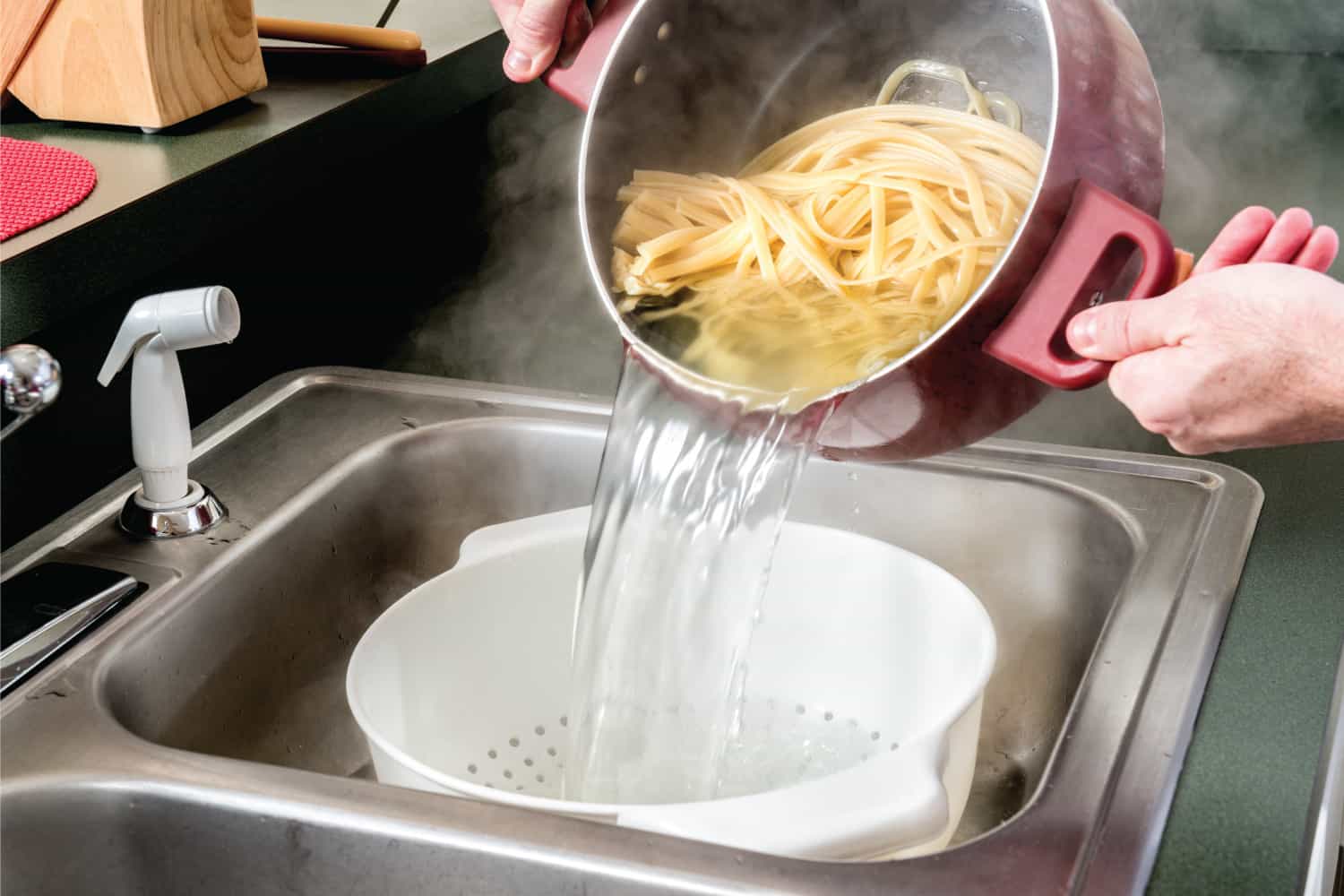
Most recipes do call for draining your pasta after cooking. If you follow the conventional recipes, then you will need to drain the noodles. You can keep half to a full cup of water to prepare your sauce if you would like a thicker sauce.
When you drain the pasta, you do not need to rinse the pasta. In fact, most experts say don't! The extra starch will help your sauce coat the noodles.
Here is an example of a device to make draining your pasta easy and safe.
Click here to see it on Amazon!
This pan already comes with a strainer lid!
Click here to see it on Amazon.
Experiment to Find Your Favorite Pasta Recipe!
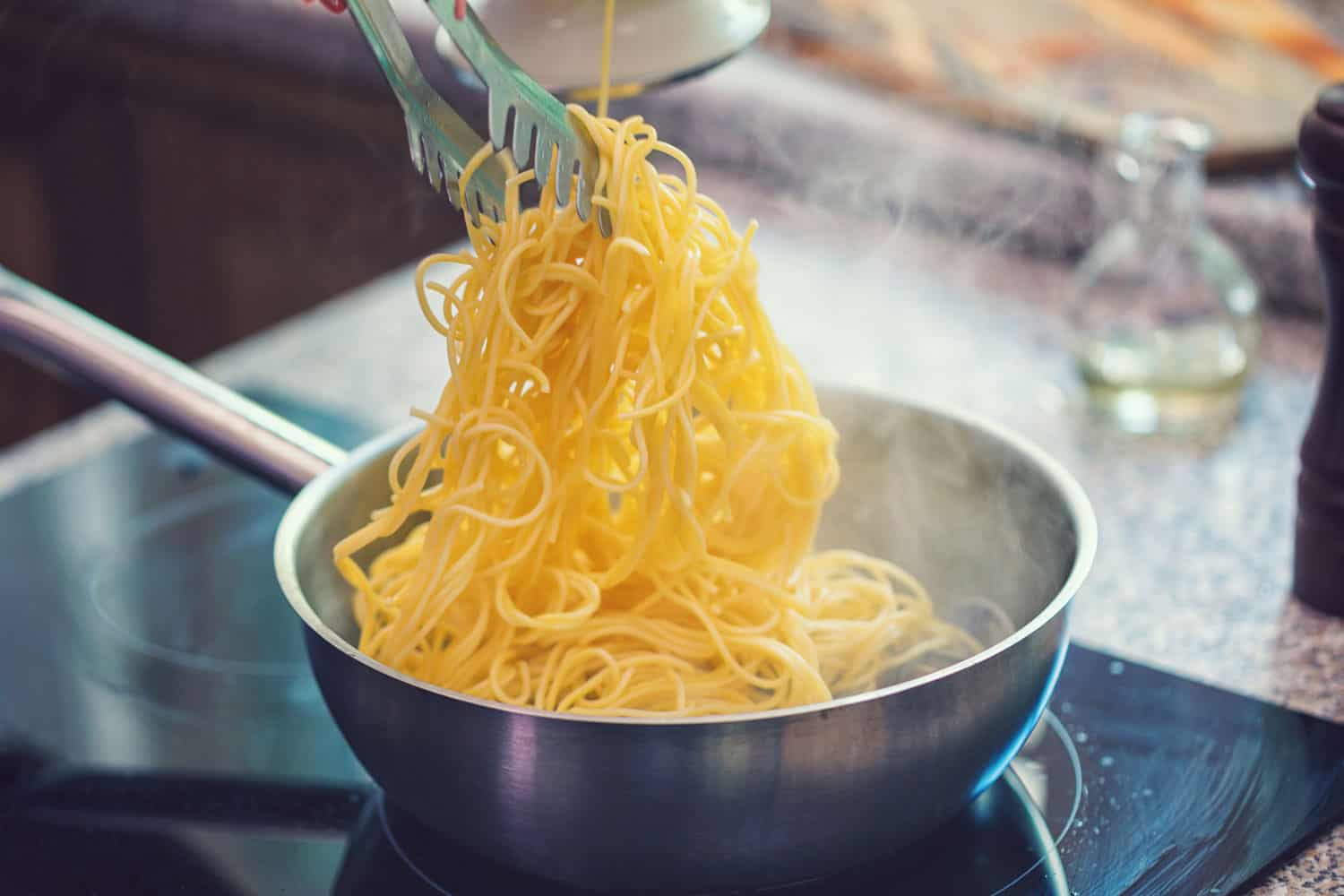
The best way to find out how pasta reacts with the water is by testing it out. Now that you know water is absorbed by the pasta during the cooking process, don't be afraid to experiment and find your favorite method! Whether you use six quarts of boiling water for a more hands-off approach or simmer your pasta in a little water, you will soon be able to turn out your favorite dish perfectly each time.
5 Best Pasta Machine Brands You Should be Looking Into
What Size Pan Is Best For Lasagna?



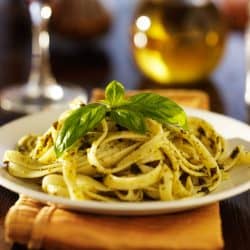
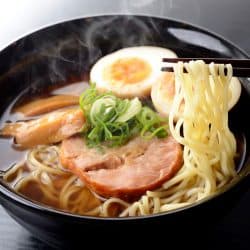
![A man making pasta using a pasta slicer, Is Making Pasta Cheaper Than Buying? [Detailed Costs Revealed]](https://kitchenseer.com/wp-content/uploads/2020/08/A-man-making-pasta-using-a-pasta-slicer-250x250.jpg)
